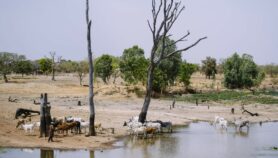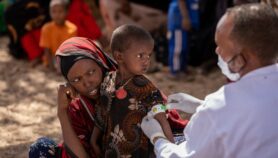By: Wagdy Sawahel
Send to a friend
The details you provide on this page will not be used to send unsolicited email, and will not be sold to a 3rd party. See privacy policy.
It aims to establish public-private partnerships and programmes for developing technological skills, strengthen science and technology infrastructure and bring about institutional and policy reforms.
The group also hopes to encourage private sector investments by boosting research through incentives such as grants and subsidies, and better aligning projects with the needs of the productive sector.
ADB plans to mobilise government finance ministers and key partners — including the African Union and the New Partnership for African Development (NEPAD) — in support of the plan.
The strategy will involve all members of the scientific community — universities, research institutions, women in science groups and the African diaspora — in exploring policies and establishing appropriate institutional arrangements in member countries.
To ensure that the strategy is implemented, and to take stock of progress, an action plan will be prepared, monitored and evaluated through annual progress reports and specific indicators, such as patent statistics, research papers, awards, and measured productivity growth.
Further details, and an exact budget, have yet to be announced. But speaking at the workshop, Mohamed Hassan, president of the Kenya-based African Academy of Sciences outlined a set of priorities for the strategy to focus on.
He called for the establishment of at least one world-class university in Africa and for effective policies to support world-class science leaders in every African country.
He also highlighted the need for digital libraries to access digitised information on scientific material, and interdisciplinary centres or networks of excellence in areas critical to economic growth, such as biotechnology, nanotechnology and renewable energy.
Hassan also said local enterprises must be established through public-private partnerships in order to develop innovative and affordable technologies that address the specific needs of developing countries
Calestous Juma, director of the Science, Technology and Globalization project at the US-based Harvard University, said the strategy would inspire new programmes in other agencies such as the World Bank.
"This is a landmark strategy that will change the way development agencies approach Africa’s development," he told SciDev.Net.
He praised the project’s emphasis on "human competence rather than the traditional focus on relief operations".
Juma said that the plan would also help implement the promises made regarding higher education at the African Union summit in January (see African leaders set guidelines for scientific growth).













